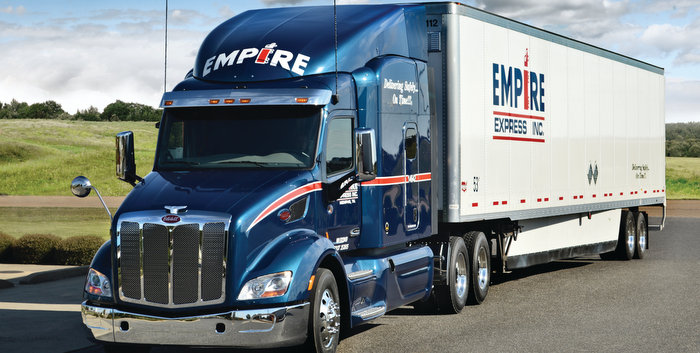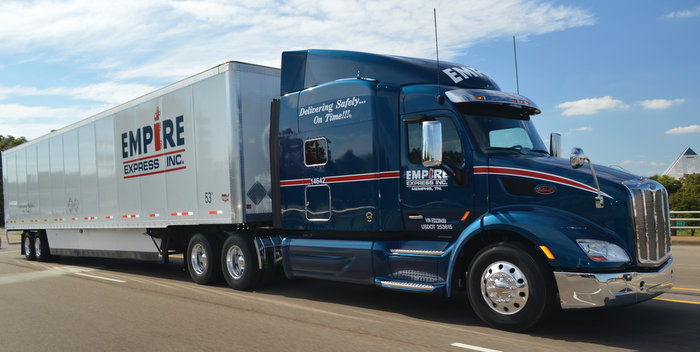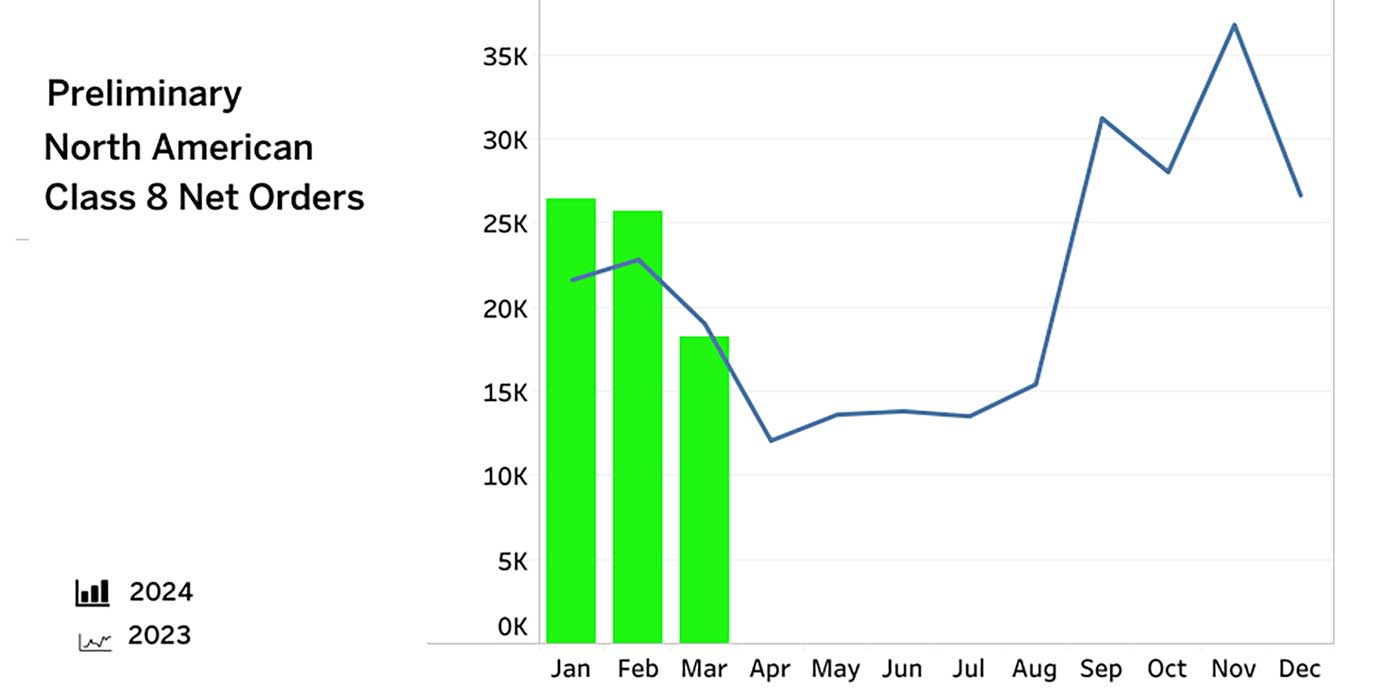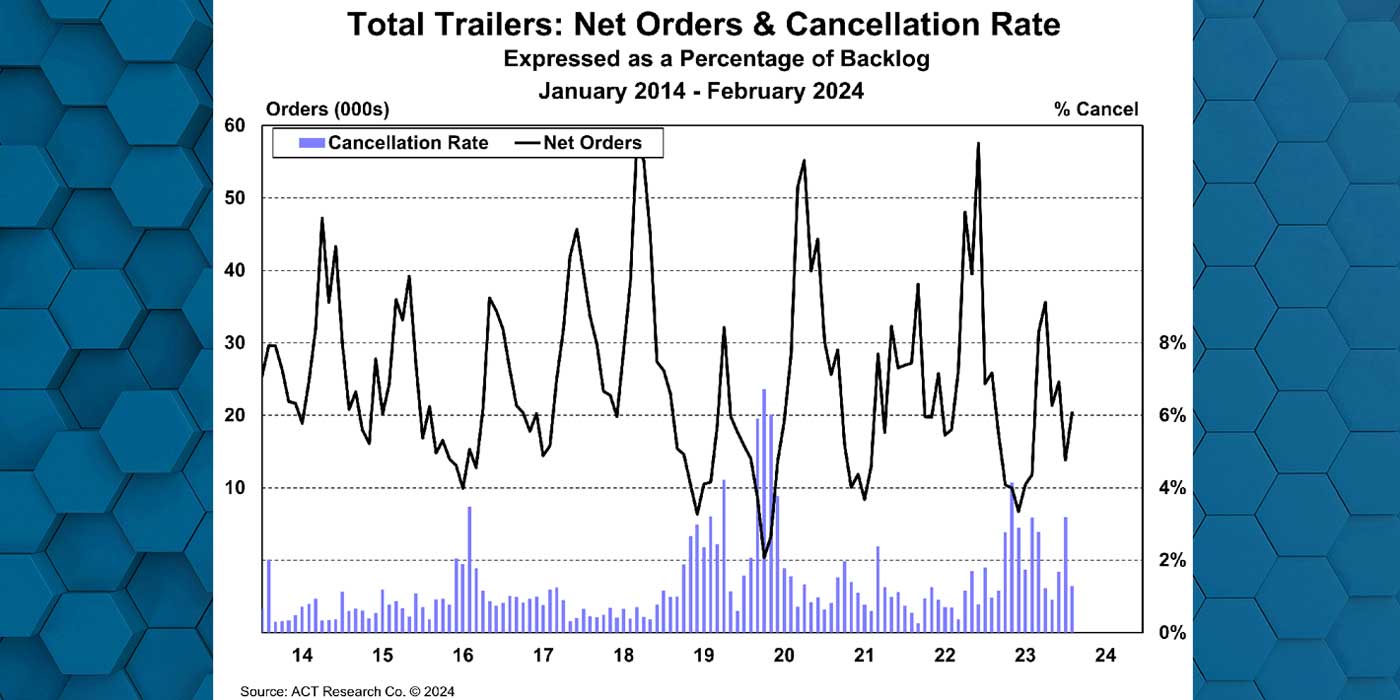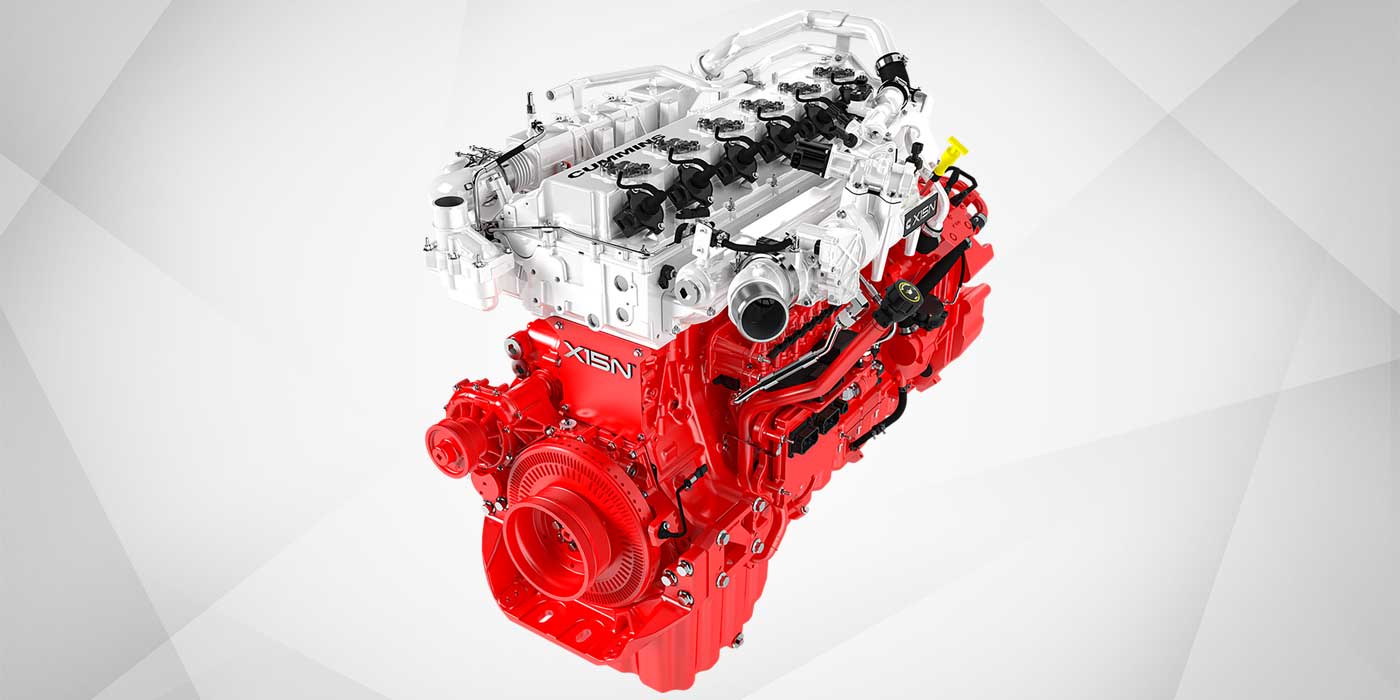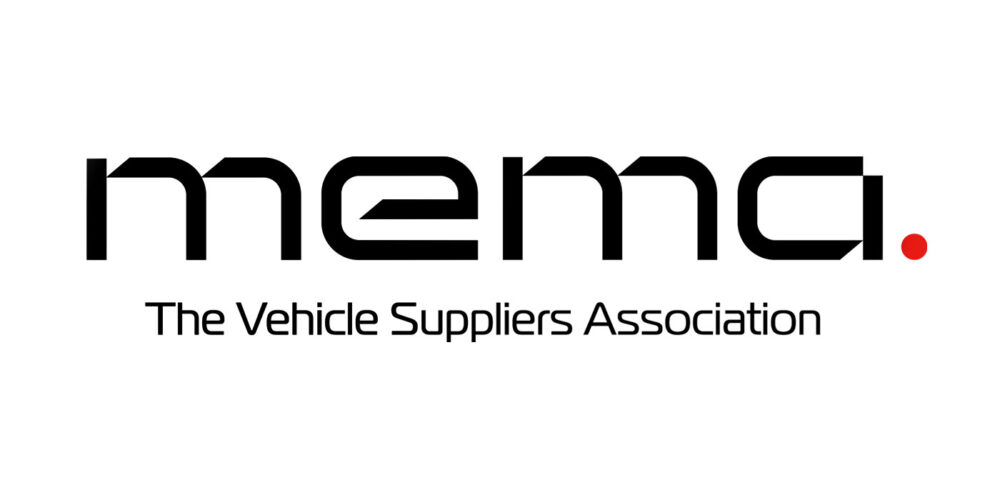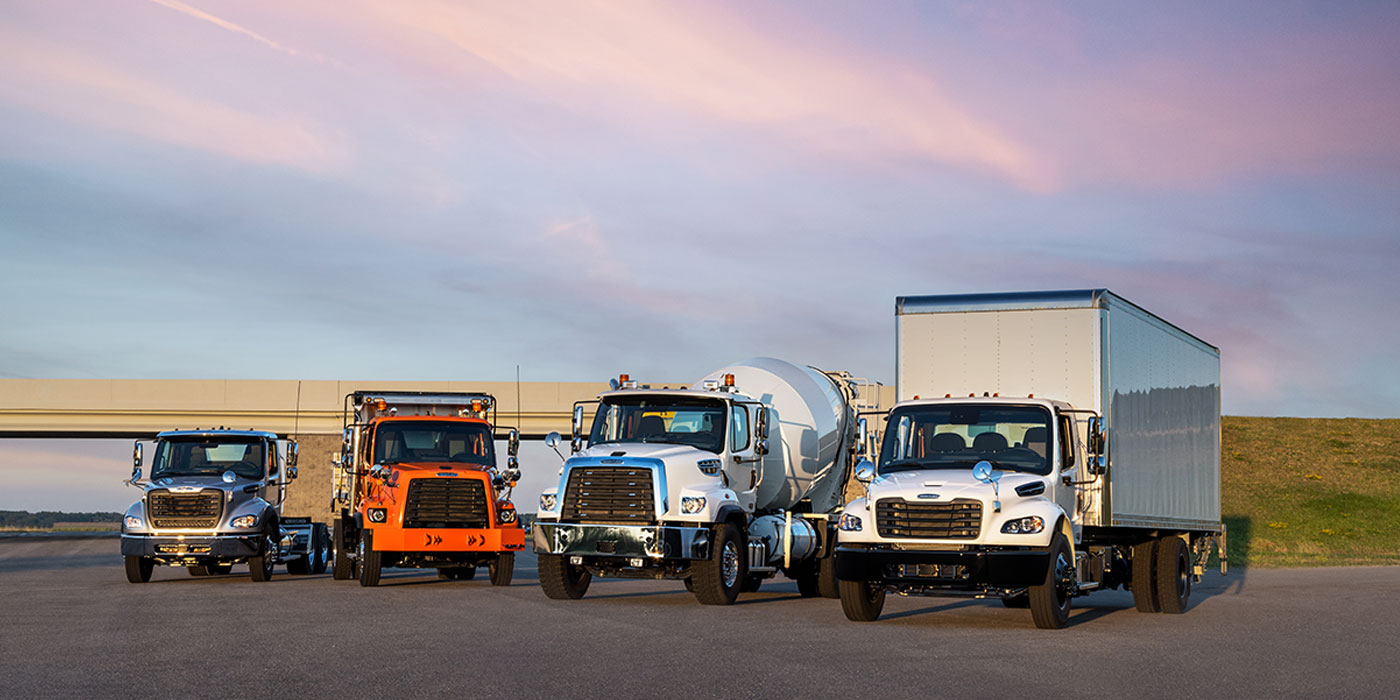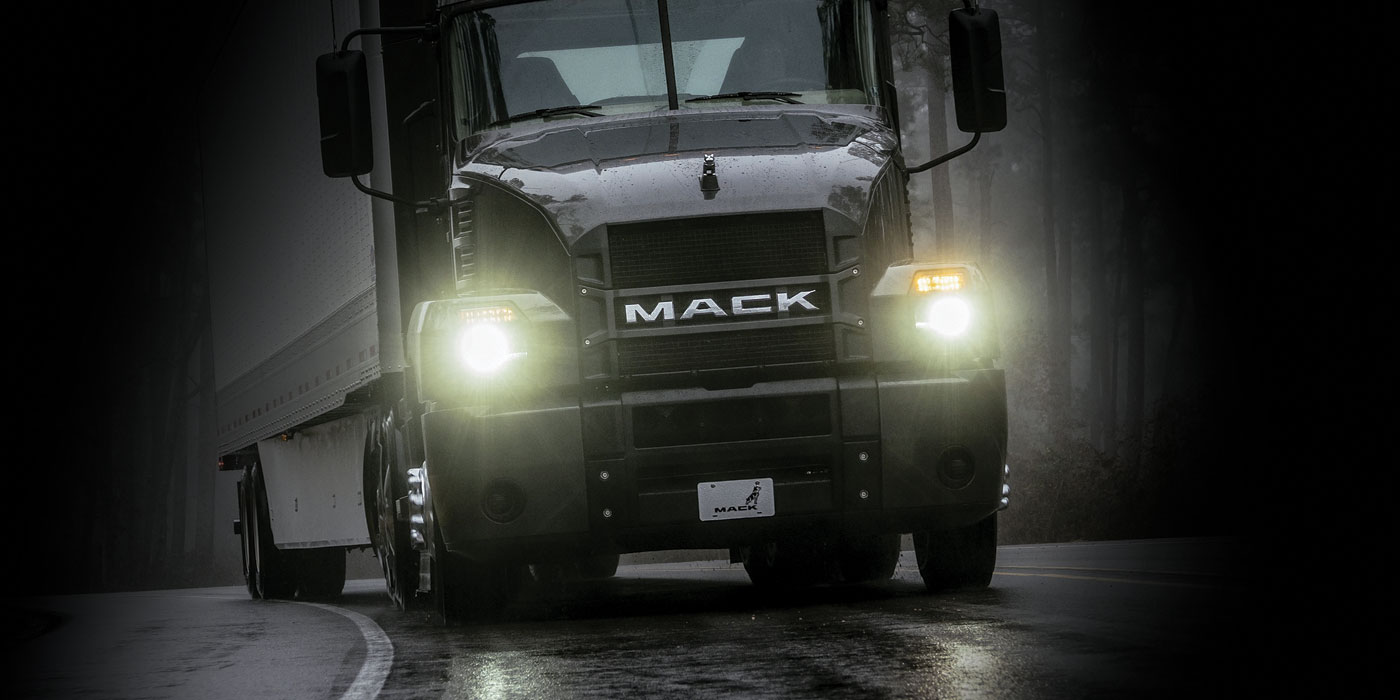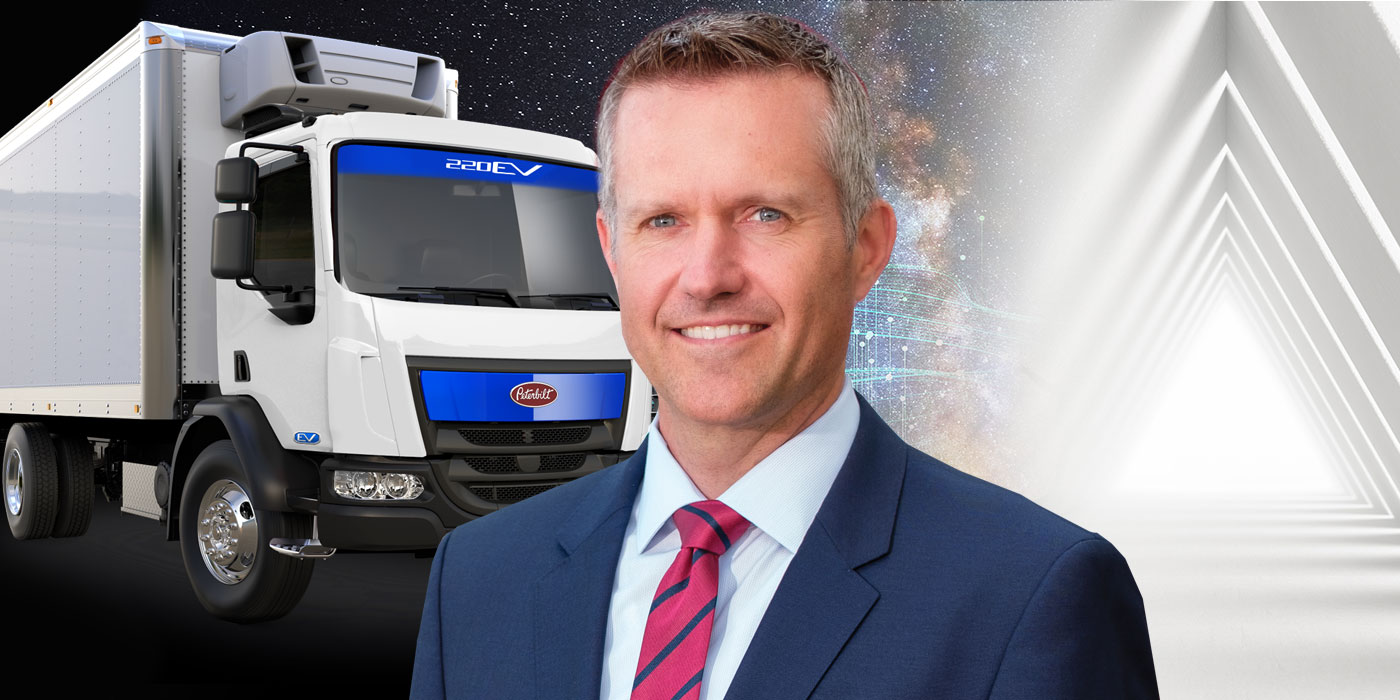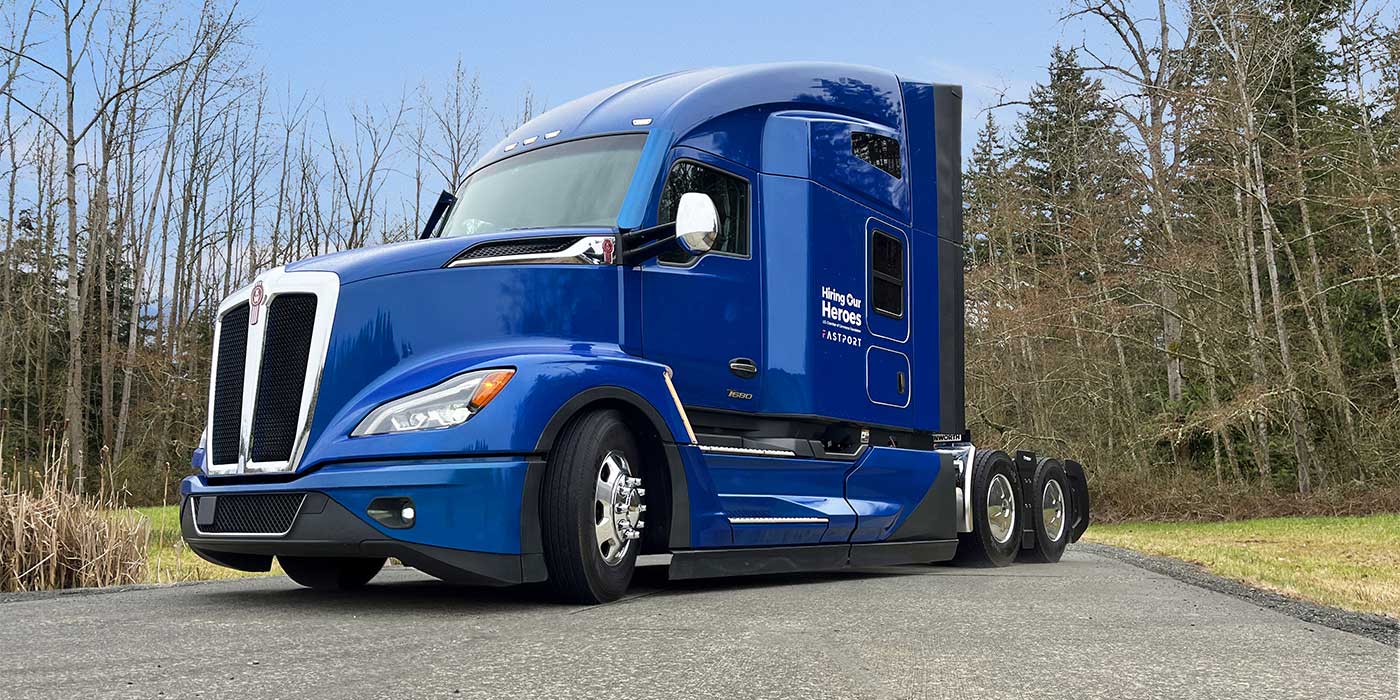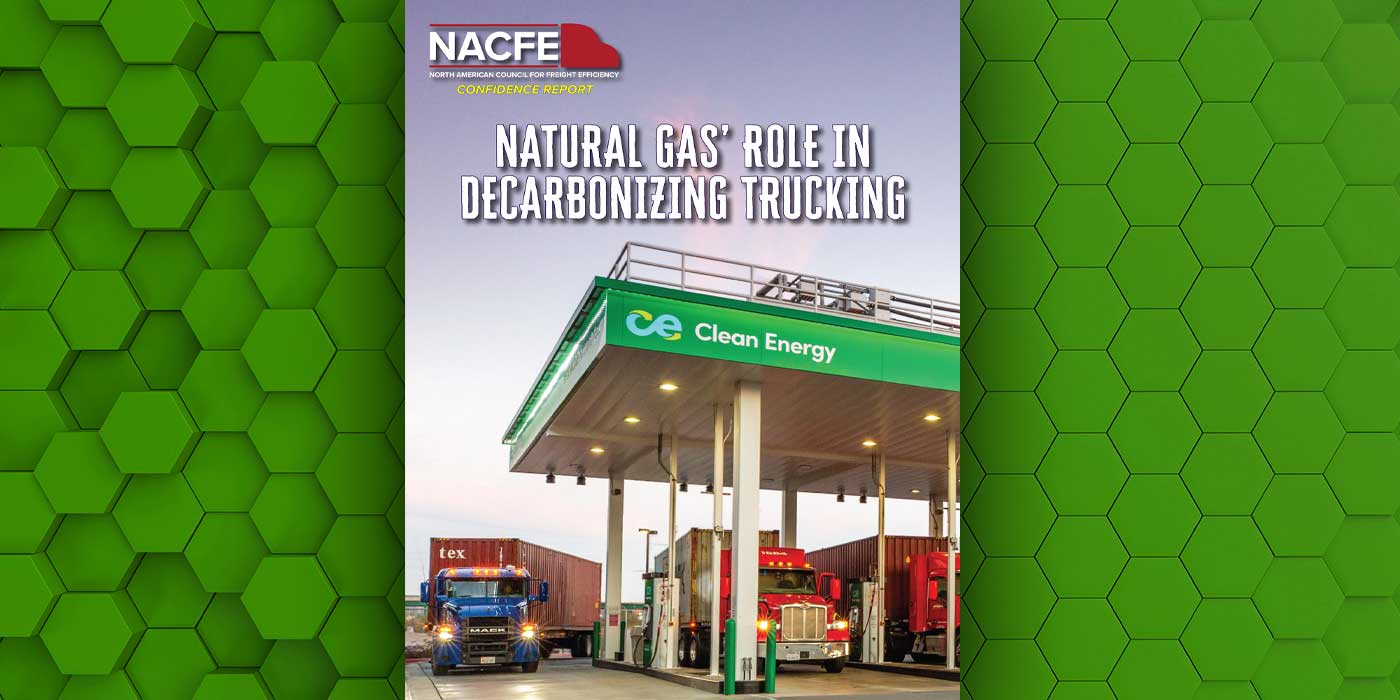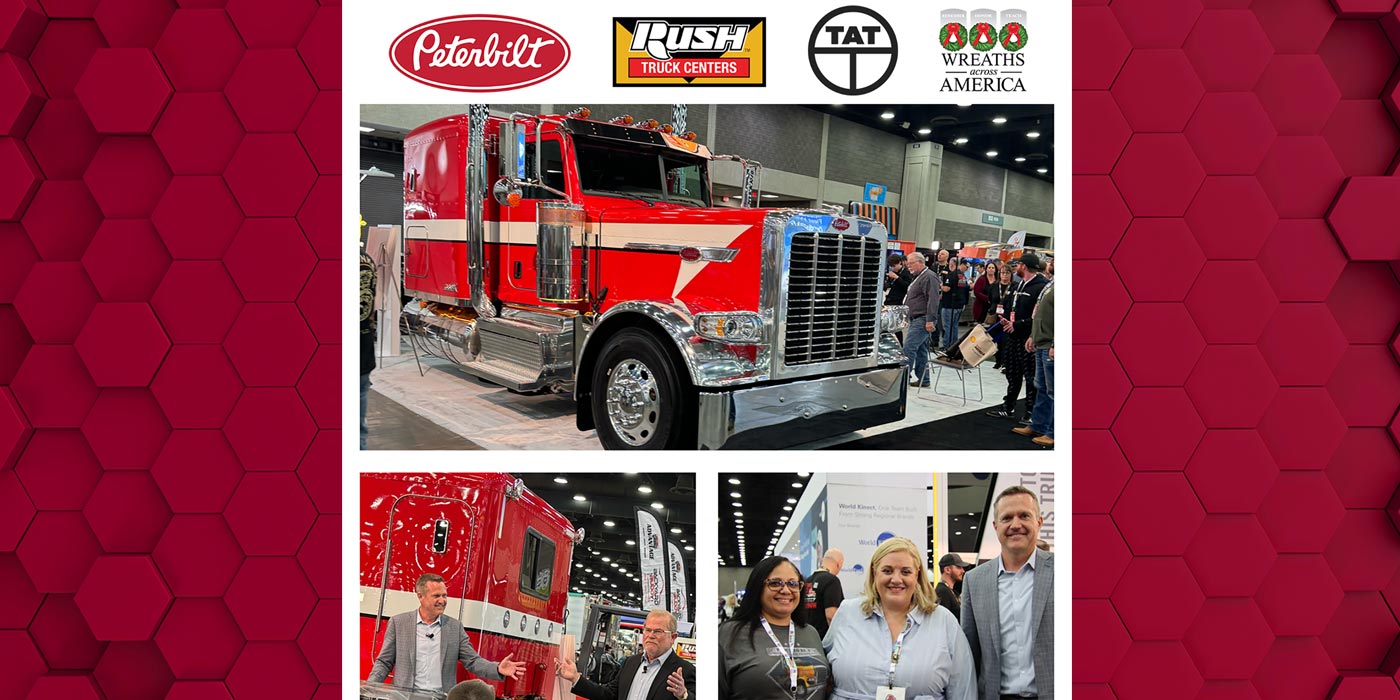
Empire Express has always had an excellent long-term safety record, says Tim Gatlin, president and chief executive officer of the Memphis-based general commodities and contract carrier. “As a specialist in hauling hazardous materials and time sensitive freight,” he adds, “we’re always looking for ways to refine our practices and improve our performance.”
A good deal of the safety focus at Empire Express is on drivers, Gatlin notes. “We firmly believe that our service is only as good as the drivers who provide it,” he states. “We expect them to continually meet our standards for safety, fuel economy and on-time performance, and we reward them for doing so. Our average company driver is paid five cents more per mile than the national average, and it’s an investment that pays dividends.
“It is also our policy to provide premium equipment, which operates safely, efficiently and reliably, so our drivers can give our customers the best service possible,” Gatlin continues, “and we also regularly utilize proven safety technology.”
In particular, Gatlin points to the Iteris lane departure warning systems on all Empire Express tractors. The dash mounted camera system measures visible lane markings, and generates a virtual rumble strip sound when it detects an unintentional lane departure.
Dramatic drop
“We track the frequency of accident types that may have been prevented due to Iteris,” Gatlin reports, “and we’ve seen dramatic drop in rollovers since we began installing the systems in 2005. The Lane Departure Warning systems reduce accidents caused by distraction and fatigue by as much as 85%. They not only monitor drivers, the systems also coach drivers to use safe habits such as monitoring their lane position and using turn signals.”
Another safety related technology fitted on Empire Express tractors is the Magtec M5K Anti-Theft System. “Magtec, which requires keypad access, has eliminated all thefts since we installed it on all tractors in 2001, Gatlin states, “and we’ve had only had one trailer theft in that time and it was not due to Magtec failure.”
A recent implementation by Empire Express to help drivers comply with new hours-of-service (HOS) rules and to enhance customer service, was to adopt Rand McNally TPC 7600 mobile communications devices fleet-wide. The Rand McNally system is now part of a suite of fleet management solutions employed at Empire Express for vehicle tracking and time-of-arrival information, as well as integration with McLeod Software’s transportation management solution.
“After fully implementing the TPC 7600 devices, our potential hours-of-service variances have been virtually eliminated, down to 1/2 of 1%,” Gatlin states. “Additionally, the system’s customizable reporting tools have provided insight into our business, and our drivers have begun to realize the efficiencies gained from using electronic logs.
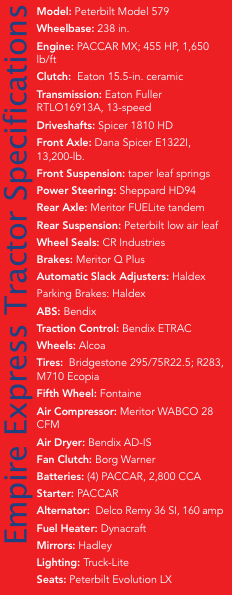 Responding well
Responding well
“After the first few months of adjustment, our drivers have responded very well to the on-board systems,” Gatlin continues. “Rand McNally worked with us to implement a train the trainer program and provided training materials for us to give each driver. In addition, our Vice President of Safety, Richard Tolbert, met with all drivers individually or in a classroom setting to demonstrate how to properly use the system, and today he continues to monitor and work with drivers that need additional training.”
Not surprisingly, Empire Express is firmly focused on driver selection, hiring and retention, as well as training. New drivers must meet age, experience and CDL endorsement requirements, as well as have clean driving records and solid references. All new hires must also successfully complete an interview process, a pre-employment drug screen, a road test and three-day orientation and 90-day probation periods.
Ongoing training is also provided covering hazardous materials regulations and placards, hours-of-service regulations and logs, accident avoidance using the Smith System and reviews of company administrative, operational, inspection and maintenance, alcohol and substance abuse familiarization, claim prevention, emergency procedure and safety policies and procedures.
Providing quality late model equipment is part of the operating model at Empire Express as well. The 195 tractors in the fleet average 24 months in age. Included are 2010 and 2011 Freightliner Cascadia and Columbia units, 2012 and 2013 Kenworth T660 and Peterbilt Model 384 tractors, 2014 Peterbilt Model 384s and 2015 Peterbilt Model 579 power units.
A total of 549 trailers in the Empire Express fleet are 64 months old on average. The 53-ft. dry vans include 2001 through 2013 Stoughton, Wabash National, Great Dane, Lufkin, Utility and Strick models, including a large number of Stoughton and Wabash composite and plate designs.
Do it right the first time
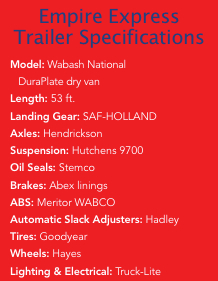 “We also believe the value of preventive maintenance and a ‘do it right the first time’ approach,” Gatlin says. “Those are keys to identifying and correcting problems before they turn into downtime problems on the road. Every tractor and trailer in our fleet is required to go through a safety lane for a full Inspection every time it passes through our Memphis terminal.”
“We also believe the value of preventive maintenance and a ‘do it right the first time’ approach,” Gatlin says. “Those are keys to identifying and correcting problems before they turn into downtime problems on the road. Every tractor and trailer in our fleet is required to go through a safety lane for a full Inspection every time it passes through our Memphis terminal.”
Incorporated in 1985, Empire Express serves customers in 49 states and Canada with a focus on hauling cargo that requires time or safety-sensitive handling. Forty-five percent of the carrier’s loads consist of packaged chemicals and related products. Other commodities hauled are clothing, home and office products, packaging and containers, paper goods and electronics.
Gatlin notes that like most carriers Empire Express is faced with increasing regulatory requirements that are contributing to driver job dissatisfaction and a worsening shortage of qualified drivers. Other challenges he cites include equipment and other cost increases.
“With the right equipment and technology and the right people, however, we are able to foster a company culture that emphasizes service excellence, safety and continuous improvement,” Gatlin states. “We remain focused on providing excellent service to shippers by employing a quality process that constantly monitors service and safety performance, and assures that we meet and exceed each customer’s service standards.”

